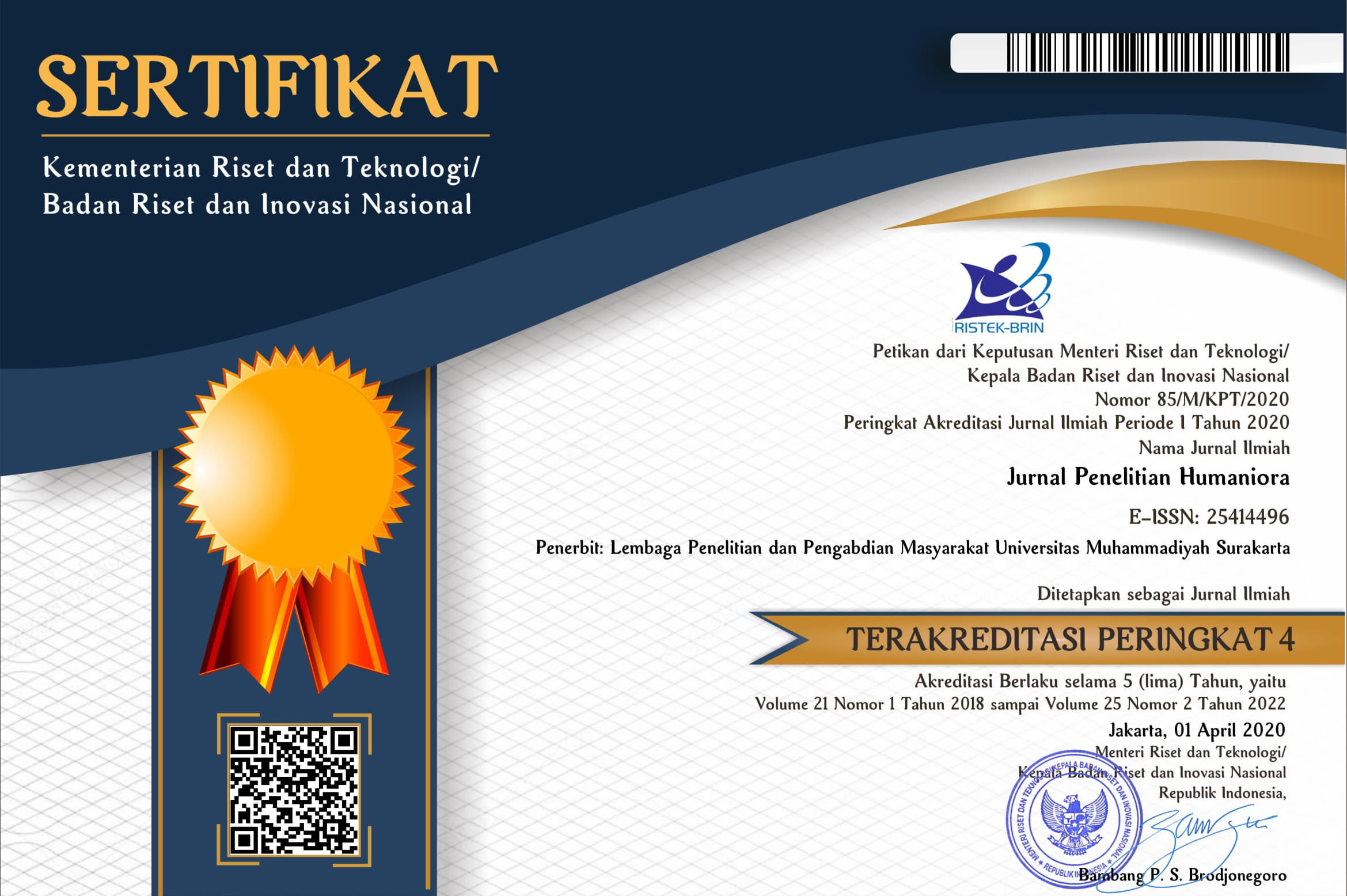SOCIO-CULTURAL MISMATCH STUDY ON THE EXISTENCE OF JEPARA 1001 BOARDING SCHOOL
Muhammad Andi Kurniawan(1*), Regita Septia Ramadhani(2), Nabila Rizqia Thalita(3)(1) Madrasah Aliyah Negeri 1 Jepara
(2) Madrasah Aliyah Negeri 1 Jepara
(3) Madrasah Aliyah Negeri 1 Jepara
(*) Corresponding Author
Abstract
This research is motivated by the existence of Jepara as the City of 1001 Islamic Boarding Schools, the dilemma in the Stereotype Mismatch Study is the socio-cultural portrait of the community that does not reflect the inherent social identity and labels. This is shown by the high social and juvenile delinquency cases such as free sex, narcotics, racing liars and the degradation of morality and character of the younger generation. Therefore, through scientific studies with a socio-cultural approach, it forms the basis of a framework for viewing ethnography that occurs in society, with the case study of Bangsri Village, Jepara Regency. This study used a Qualitative Method with an Ethnographic research design to analyze, view, and explain the condition of the people studied through descriptive studies. The research base is located in Bangsri Village, Jepara Regency. Data collection was obtained through primary and secondary data sources, with data validity techniques through source and technique triangulation and using interactive data analysis models. The results of this study are expected to provide alternative guidelines and references in maximizing Jepara's Existence as a City of 1001 Islamic Boarding Schools with the basis of Civil Society which upholds the values of the Islamic Religion and the progressive Al-Qur'an.
Keywords
Full Text:
PDFReferences
BPS Jepara. (2019). Number of Islamic Boarding Schools by Sub-District in Jepara Regency. Accessed through https://jeparakab.bps.go.id/statictable/2020/07/06/713/jumlah-pondok-pesantren-menurutan-kecamatan-kabupaten-jepara-tahun-2019-.html
BPS Central Java. (2021). Crime Index in Central Java According to Polres, Polretsa and Polrestabes 2019-2021. Accessed via https://jateng.bps.go.id/indicator/34/562/1/indeks-kejahatan-di-jawa-central-by-polres-polretsa-dan-polrestabes.html
IDN Central Java. (2020). High Marriage Dispensation in Jepara, 237 Cases, Dominant Children 18 Years. Accessed through High Marriage Dispensation in Jepara, 237 Cases, Dominant Children 18 Years ( idntimes.com)
Handrian. (2020). Sustainable Development Goals: Review of Accelerating Achievement in Riau Province. PUBLIKA : Journal of Public Administration Sciences, 6(1), 77–87. https://doi.org/10.25299/jiap.2020.vol6(1).4995
Hidayat, A., Sujana, A., &; Al Gadri, H. H. (2018). Social representation of the pesantren community about the meaning of peace. INFERENCE: Journal of Social Religious Research, 12(1), 107–126. https://doi.org/10.18326/infsl3.v12i1.107-126
Hilton, J. L., & Von Hippel, W. (1996). Stereotypes. Annual Review of Psychology, 47(February 1996), 237–271. https://doi.org/10.1146/annurev.psych.47.1.237
Indrayani, H., Satriya, C. Y., Rahma, A., & Sukma, R. H. O. M. (2022). Developing Social Capital in Reputation of Jepara as a Carving City. Jurnal Perencanaan Pembangunan: The Indonesian Journal of Development Planning, 6(1), 106–115. https://doi.org/10.36574/jpp.v6i1.261
Karmadi, A. D. (2017). Local Culture as Cultural Heritage and Efforts to Preserve It. Central Java Regional Cultural Dialogue, 1–6. Page not found - Ditjen Kebudayaan (kemdikbud.go.id)
Marhaeni, S. S. (2017). Building urban society towards civil society. JPPKn, 2(2), 149–200.
Masyithoh, R. E., Makmuri, &; Suprayogi. (2014). Wild racing habits among teenagers on the highway of Senenan Village, Annual District, Jepara Regency. Unnes Civic Education Journal, 3(1), 18–24. http://journal.unnes.ac.id/sju/index.php/ucej%0AKEBIASAAN
Najib, M. A. (2020). Internalization of Islamic Religious Values. Postgraduate IAIN Purwokerto, 1(3).
Paksi, R. A. E. (2013). Description of the Socio-Cultural Life of the People of Pekon Wonosobo, Wonosobo District, Tanggamus Regency.
Primary, M. A. W. M. (2020). Welfare Politics: Analysis of Community Welfare in Triple Disruption Conditions. UMPR Journal, 4(1), 1–23.
Rahmadania, Sinta, Ajun Junaedi Sitika, and Astuti Darmayanti. "The role of Islamic religious education in the family and society." Edumaspul: Journal of Education 5.2 (2021): 221-226.
Sari, M. P., Wijaya, A. K., Hidayatullah, B., Sirodj, R. A., &; Afgani, M. W. (2023). Use of Ethnographic Methods in Social Research. Journal of Science and Computer Education, 3(01), 84– 90. https://doi.org/10.47709/jpsk.v3i01.1956
Sumardi, K. (2013). Portrait of character education in Salafi Islamic boarding schools. Journal of Character Education, 3(3). https://doi.org/10.21831/jpk.v0i3.1246
Umar Sidiq, M. M. C. (2019). Qualitative Research Methods in Education. In Journal of Chemical Information and Modeling (Vol. 53, Issue 9). http://repository.iainponorogo.ac.id/484/1/metode qualitative research in the field of education.pdf
Sugiyono. (2015). Quantitative, Qualitative and R&D Research Methods. Bandung: Afabeta.
John, S. (2017). The Role of Law in Realizing Community Welfare. In Journal of Pro Jutistia Law (Vol. 25, Issue 3, pp. 270–282).
Zaenurrosyid, A. (2018). The influence of Islamic boarding schools on the social life of the people of Kajen Village, Margoyoso Pati District. Islamic Review: Journal of Islamic Research and Studies, 7(1), 55-71
Article Metrics
Abstract view(s): 236 time(s)PDF: 110 time(s)
Refbacks
- There are currently no refbacks.











